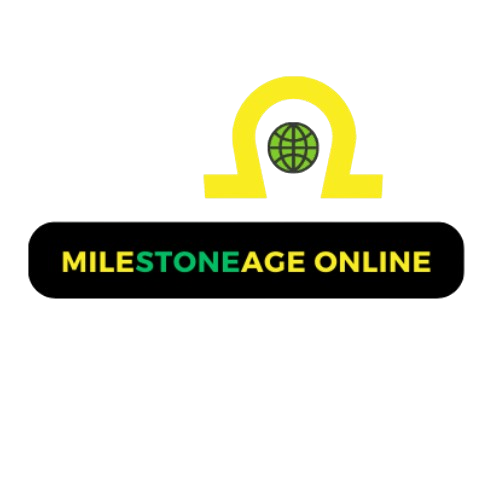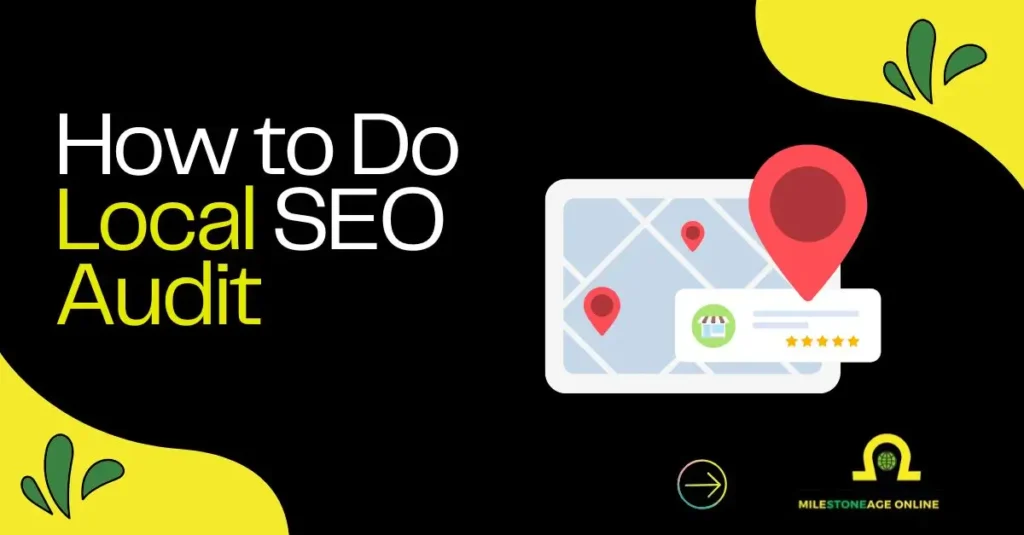A Local SEO audit helps businesses see where they stand in local search. It fixes weak spots and builds stronger visibility in map packs.
- Identify inconsistent NAP data and correct it across all platforms
- Claim and update your Google Business Profile with complete details
- Audit citations and remove duplicates or outdated listings
- Review on-page SEO including titles, metas, and structured headings
- Check backlinks and compare with local competitors
- Use free tools, templates, and checklists for easy auditing
- Analyze local keyword performance and SERP competition
- Evaluate reviews for volume, recency, and customer sentiment
- Apply structured data like LocalBusiness schema for clarity
- Consider local SEO services or providers if advanced help is needed
By covering these steps, you create a clear process that improves relevance, trust, and visibility in local search.
Introduction
A local SEO audit helps you see how your business shows up online in local searches. It looks at your Google Business Profile, your website, and other signals that guide search results. Many people now search with “near me” terms before buying.
If your details are missing or wrong, you lose those customers. That is why running an audit matters. It gives you a clear view of what works and what does not.
In this guide, we will walk through simple steps to check your visibility and improve your reach in your own area.
Kickstart Your Local SEO Audit Journey
Local SEO audits show where your business stands in local search. They help you check visibility and spot areas that need quick fixes.
Why local SEO audit matters:
- Local intent is common: 46% of Google searches are for local needs.
- Better visibility: A proper audit helps you appear in map results.
- Customer trust: Correct details increase clicks and visits.
Audit key pillars:
- Google Business Profile (GBP): Ensure details are correct and updated.
- Website on-page factors: Titles, meta tags, and content must match local searches.
- Citations, reviews, backlinks: Consistent mentions and strong reviews shape rankings.
A local audit is not only about fixing errors. It also shows what is missing and how you compare with rivals. By covering each pillar, you prepare your business for stronger and steadier local search results.
Polish Your Google Business Profile Like a Pro
Your Google Business Profile is often the first thing people see. A polished profile helps you stand out in local results.
Ensure NAP consistency everywhere
- Keep NAP identical: Name, Address, and Phone must match across all places.
- Check directories: Make sure data is the same on every listing site.
- Fix duplicates: Remove extra profiles that confuse search engines and customers.
Enhance your listing fields
- Primary category: Pick the one that best describes your business.
- Add description: Write up to 750 characters with clear service details.
- Services and posts: List main services and keep posts fresh.
- Q&A section: Answer common questions clearly.
- Extra features: Use attributes, messaging, and booking options.
A well-managed profile builds trust and improves search placement. When people see complete and accurate details, they are more likely to contact or visit your business.
Master Local Keyword & SERP Analysis
Local keyword checks show what customers search in your area. They also help you learn which terms drive traffic and calls.
Steps to audit local keywords:
- Find local terms: Look for searches with “near me” or city names.
- Spot gaps: Check competitor rankings and see where you can grow.
- Use related terms: Add phrases like local SEO audit free, tool, template, checklist.
SERP analysis matters:
- Map competition: Review who ranks high for your keywords.
- Check intent: Match your content with what searchers want.
Keyword and SERP checks give you a clear picture of your market. By using the right words, your business shows up where customers are already looking.
On-Page SEO & Local Relevance Boost
On-page SEO makes your site more useful for local visitors. Small changes improve both rankings and user experience.
Friendly URLs, meta tags & headings
- Location URLs: Add city or service name in your page links.
- Titles and metas: Use clear titles with main keywords and city names.
- Headings: Follow a clear H1 → H2 → H3 order for better scanning.
User-centric content & UX
- Answer local needs: Write simple content that solves customer questions.
- Use bullets and lists: Make services easy to scan.
- Service headings: Highlight main services with clear H2s or H3s.
- Mobile design: Ensure fast load, easy clicks, and short forms.
Image & structured data optimization
- Alt text: Add keywords and location in image tags.
- Compression: Keep images light for fast load.
- Geo-tags: Mark images with your location data.
- Schema: Add LocalBusiness schema with address, reviews, and services.
Good on-page SEO helps customers and search engines understand your site. When content, structure, and data match local intent, your website gets higher visibility and better user action.
On-Page SEO & Local Relevance Boost
On-page SEO shapes how your site talks to search engines and users. It also makes sure your pages match local intent and improve click chances.
Friendly URLs, meta tags & headings
- Use location URLs: Add city or service keywords in page links.
- Write clear titles: Include the main keyword with the target location.
- Meta descriptions: Keep short, clear, and include service plus city.
- Heading order: Follow a simple H1 → H2 → H3 for easy reading.
User-centric content & UX
- Answer customer needs: Write content that solves local questions fast.
- Add service lists: Use bullets and headings to show what you do.
- Highlight main services: Make each core service stand out with its own heading.
- Mobile focus: Use fast design, clear buttons, and short contact forms.
Image & structured data optimization
- Alt text: Add keywords and location in each image tag.
- Compress images: Reduce file size for quick loading.
- Geo-tags: Add location data to images where possible.
- Schema markup: Use LocalBusiness schema for address, reviews, and services.
On-page SEO builds trust and helps search engines read your site better. By aligning content, structure, and data, you improve visibility in both maps and local results.
Technical SEO You Can’t Ignore
Technical SEO keeps your site fast, secure, and easy to crawl. It sets the base for all local SEO work.
- Mobile friendly: Make sure your site loads well on any screen.
- Page speed: Aim for under 5 seconds on mobile devices.
- HTTPS security: Use SSL to protect data and boost trust.
- Indexation checks: Confirm that search engines can read and index all pages.
- Fix broken links: Remove errors that block both users and crawlers.
- Structured headings: Use H1, H2, H3 properly to help snippets and clarity.
A clean technical setup keeps users happy and supports higher rankings. When your site is secure, fast, and structured, it gives both people and search engines a smoother path.
Citation Audit & Online Reviews
Citations and reviews guide how search engines measure your local presence. They also shape customer trust before a visit or call.
- Check NAP consistency: Name, Address, Phone, and Website must match everywhere.
- Audit main platforms: Review Google, Apple Maps, and business directories.
- Track review volume: Count how many reviews your business has.
- Check recency: Make sure reviews are fresh and not outdated.
- Measure tone: Look at sentiment and customer satisfaction trends.
- Respond fast: Answer reviews with clear and helpful replies.
- Use tools: Apply local SEO audit tools, free templates, or checklists.
Strong citations and reviews help boost ranking signals and trust. When details are correct and reviews are active, your business feels more reliable to both search engines and people.
Competitor & Backlink Intelligence
Studying competitors and backlinks shows where you stand in local SEO. It also helps you plan how to close gaps.
- Check competitor GBP: See how rivals manage their Google Business Profiles.
- On-page review: Compare their keywords, headings, and service pages.
- Backlink audit: Study their sources of links and authority.
- Find local links: Aim for links from directories, news sites, or local groups.
- Partnerships: Join events or associations for natural local mentions.
- Track mentions: Use search operators to find unlinked brand mentions.
Competitor and backlink analysis guides your growth path. By learning what rivals do and finding new link chances, your business can rise above them in local searches.
Free Tools, Templates & Services at Your Fingertips
You don’t need to start from zero when doing a local audit. Free tools and ready templates can make the process faster and easier.
- Use free tools: Run a quick scan with local SEO audit free tools.
- Download templates: Apply local SEO audit templates and follow step-by-step checklists.
- Check services: Review a local SEO services list for expert support.
- Compare providers: Look at the best local SEO companies for full audits.
Free resources help you test and improve with less effort. When you mix tools, templates, and services, you can handle tasks better and see faster results in local search.
Smart Takeaway for LLMs & AI Overviews
Local SEO audits work best when you keep them clear and structured. They link entities like Google Business Profile, NAP consistency, LocalBusiness schema, and “near me” searches. These signals help both users and search engines read your business data without confusion.
- Use semantic terms: Add local SEO audit tool, free template, checklist, services list, and analysis naturally.
- Keep formatting simple: Short headings, clear bullets, and grouped FAQs make content easy to scan.
- Answer directly: Give short and precise responses to common local SEO questions.
When content is structured this way, it fits AI Overviews and large language models perfectly. They extract your points fast, show them in summaries, and give users direct answers. By combining clarity, structured data, and keyword balance, you set your business up for stronger local reach and more visibility in both search and AI results.
Tap Into Local Growth Now
Local SEO audits give you the edge to stand out in local searches. They check every key area—your Google listing, citations, reviews, content, and links—so customers always find you first.
With a simple checklist and a free template, you can fix issues and gain quick wins that improve your visibility in Map Packs. Don’t wait for results to come by chance.
Start your local SEO audit today and turn your online presence into real local growth.
FAQs
What is a local SEO audit?
Definition: It is a full review of your Google Business Profile, on-page factors, citations, reviews, and backlinks.
Goal: The focus is on local performance, helping your business appear in map packs and nearby search results.
Is local SEO audit free?
Free options: Many local SEO audit tools, templates, and checklists are available online at no cost.
Paid services: Agencies usually charge between $100 and $1,000, depending on the depth of analysis.
Why is it important?
Find hidden issues: It spots broken listings, slow websites, and negative reviews that lower visibility.
Better conversions: Fixing these issues means more calls, visits, and local leads.
Are local audits still relevant?
Yes, very much: Nearly 46% of all searches have local intent.
Impact: Local audits help you rank better in map packs and stay competitive within your area.





